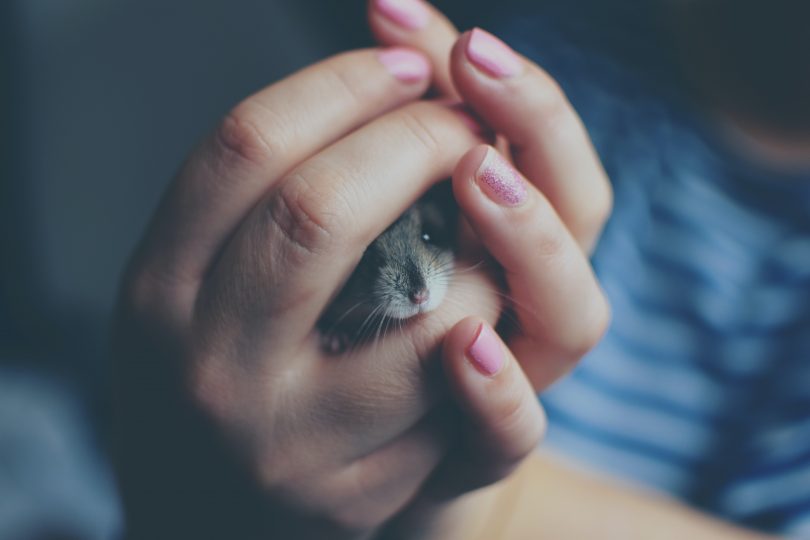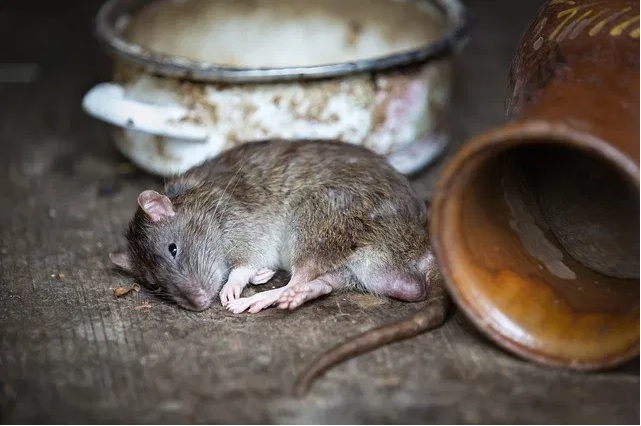
There are risks associated with the handling of mice and their carcasses, especially during the current mouse plague. Photo: Supplied.
While people across multiple Australian states are worrying about how to trap mice during the current plague, a Charles Sturt University expert has warned we should be equally concerned about how we handle and dispose of them.
Andrew Peters, an associate professor in wildlife health and pathology at the university’s School of Animal and Veterinary Sciences in Wagga Wagga, said contact with wild mice could be harmful to the health of humans and domestic animals.
Associate Professor Peters is warning about the dangers of mouse urine and faeces in food, or dead mice contaminating water tanks.
Contact with wild mice can lead to symptoms ranging from the very mild to serious illness – including leptospirosis and salmonella – requiring hospitalisation.
“There are a number of infectious diseases in mice that can cause illness in people, especially through contamination of food or water,” said Associate Professor Peters. “These can be a significant risk to human health.”
After months of baiting and trapping mice, residents are still in the process of ridding their properties of the rodents.
But Associate Professor Peters said there are risks from handling mice and disposing of their carcasses.
“It’s important to make sure that when handling mouse carcasses, adequate care is taken to protect yourself and others,” he said.
When faced with having to dispose of hundreds of mouse carcasses a day, he advised people contact their local council as exposure can pose a risk to workers involved in the waste disposal.

Regular washing of hands, wearing gloves when handling live or dead mice, keeping mice away from food, and seeking expert advice on water treatment are some of the measures people should be taking during the current mouse plague. Photo: Supplied.
There is little evidence on the risk of infection associated with contact with wild mice because many cases of zoonotic diseases – where an animal infects a person – are underreported or undiagnosed.
“While we don’t know exactly how serious the health risk is to people during mouse plagues, the extra level of contact with wild mice during these events probably causes additional risk, and that is worth trying to prevent,” said Associate Professor Peters.
He said there are precautions people can take if they have contact with wild mice to limit the chance of infection or disease.
These include regular washing of hands, wearing gloves when handling live or dead mice, keeping mice away from food, and seeking expert advice on water treatment.
Disposal of dead mice should follow local council advice, but can include commercial biowaste composting – for example, green-bin disposal in some areas – or double-bagging for removal with standard waste.
Associate Professor Peters recommends that experts in water quality management, or local councils, be contacted if it is suspected water tanks or supplies might be contaminated.
This advice comes as the NSW Government’s Mouse Bait Rebate Program gets underway.
The program is expected to open in early July, but eligible households and businesses can claim the rebate for mouse bait products purchased on or after Thursday, 13 May, 2021.
Grants are available for households and small businesses in regional and rural areas to help manage the cost of mouse baiting.
To be eligible to claim a mouse bait rebate:
- Your household or business must be located in regional NSW (defined as areas outside Greater Metropolitan Sydney, Newcastle and Wollongong);
- Your baits must have been purchased on or after Thursday, 13 May, 2021;
- You must provide receipts to Service NSW when you lodge a claim.
Multiple receipts can be used to claim a rebate up to the $500 limit for households, and up to $1000 for small businesses.







